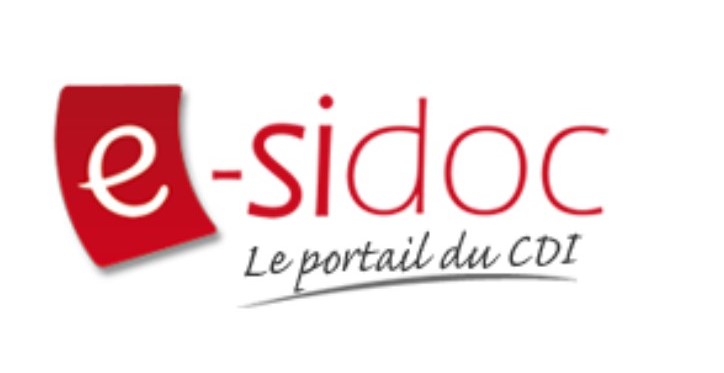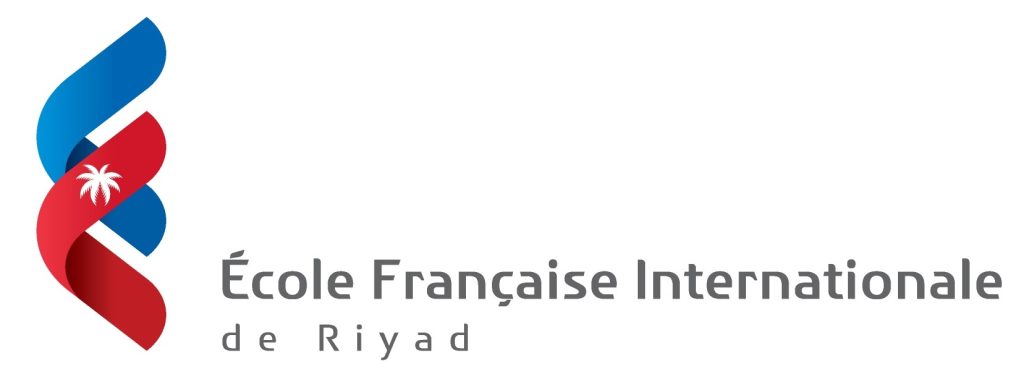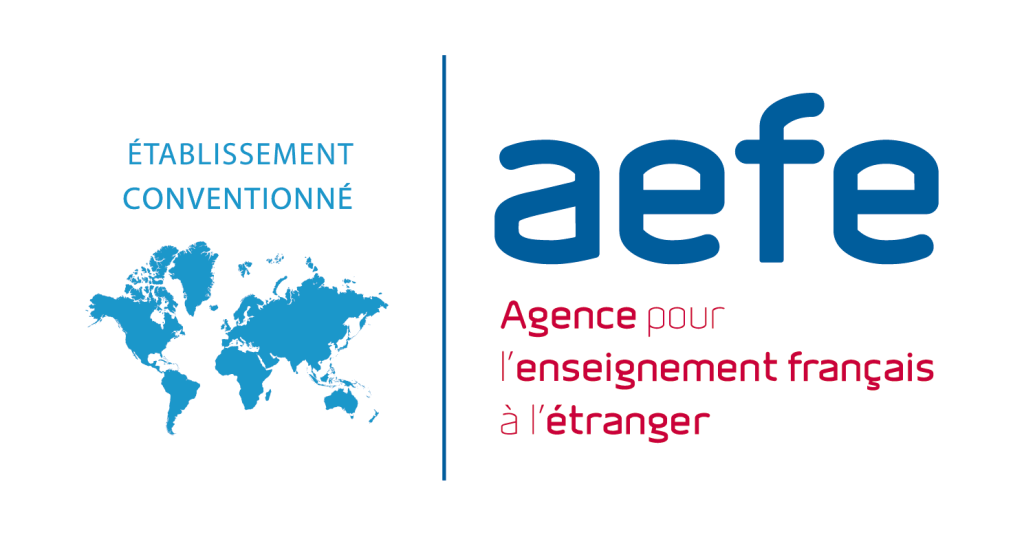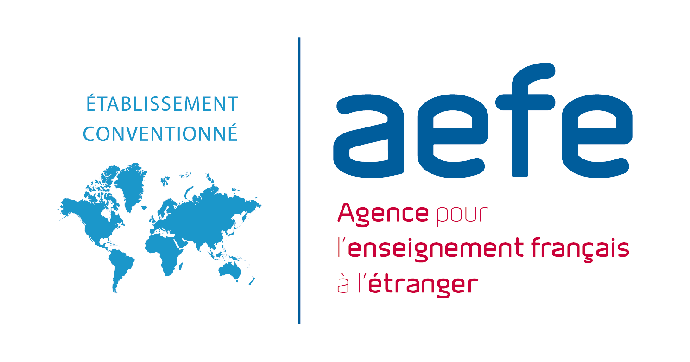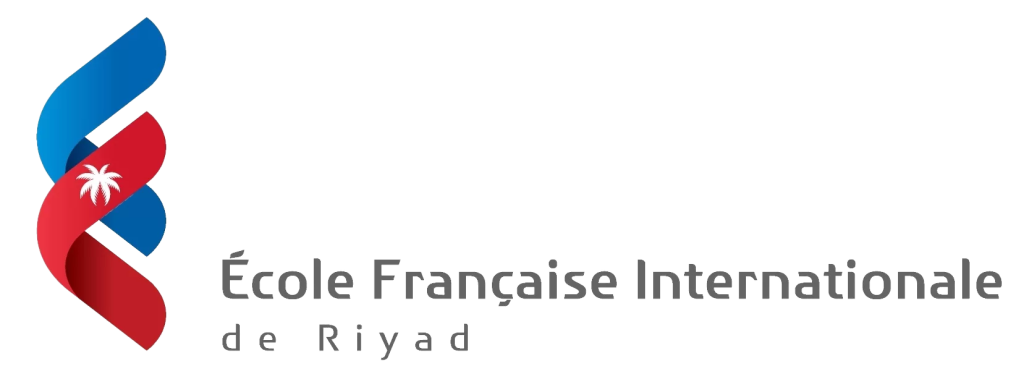Secondary internal regulations
The French International School of Riyadh is a teaching and education establishment, that is to say a place of communication, culture, learning of knowledge and citizenship, development of skills and preparation in exams.
It must allow all the people who use it, whatever the nature of their occupations, to work and live there in the best possible conditions.
The internal regulations are the expression of the rules of life, obligations, rights and duties of the entire educational community. This community brings together students and all those who in the establishment, or in relation to it, participate in their training, that is to say:
▪ Staff regardless of their functions, status and grades;
▪ Parents of students;
▪ School partners.
In accordance with the provisions inherent to the approval of our establishment by the French Ministry of National Education, the internal regulations are inspired by the principles which found the French school:
▪ Neutrality and secularism;
▪ Work and effort;
▪ Attendance and punctuality;
▪ Equality of opportunity and treatment regardless of the student's sex, religion and origin;
▪ Tolerance and respect for others in their person and in their convictions;
▪ The guarantee of protection against any form of psychological, physical or moral pressure or aggression;
▪ The adoption of the French language as a vector of dialogue, work and progress.
In addition, the staff recruited by the establishment will take care to prohibit and refuse any proselytism.
The internal regulations adopted by the governing board must allow everyone to live and work in harmony and to contribute together to the ultimate goal assigned to any educational establishment: the success of each student.
1. Organization of the school week
Access conditions :
Students enter through door A (kindergarten) and door B (elementary and secondary).
Entrance is strictly reserved, unless specific authorization is given by the management of the establishment, to members of the educational community with a badge.
Visitors can only be received by appointment. Visitors who do not carry badges enter and leave the school through reception at Gate B. They are subject to inspection with submission of an identity document and issue of a badge. They are only authorized to go to places strictly related to the declared reason for their visit, in absolute compliance with the rules and prohibitions in force in the establishment. They must be accompanied by a member of staff throughout their visit.
|
Any suspicious presence must be reported immediately to the administration by any member of the community.
SCHEDULES
Classes take place from Sunday to Thursday. The premises open from 7:15 a.m. to 4:30 p.m.
Course times depend on class levels and timetables.
STUDENT MOVEMENTS
STUDENT ENTRY
Student entries are made according to their schedule.
For middle school students, parents can ask that the child enter the establishment at 7:45 a.m. regardless of the start time of their classes. He is then sent to the work room and his parents are informed if he is absent.
Entrance gates are open 10 minutes before each class.
The families or the person responsible for the student will ensure before leaving that they return safely to the establishment. They remain responsible for the student until their actual entry.
STUDENT EXIT
Any student who is unable to present his correspondence book to the education assistants upon exit may not be authorized to leave the establishment.
The middle school student who stays in the establishment outside the hours of his schedule must be either in an extra-educational activity or in the work room.
Middle school students will only be able to leave the establishment at the end of their last hour of classes.
In the event of an unplanned absence of the teacher from the last lesson of the day, students with the exit authorization signed by their family at the start of the year will be authorized to leave the establishment. Middle school students who do not have permission to leave will have to go to the work room.
Exceptionally, they will be allowed to leave the establishment during the day if they are being looked after by their parents.
For safety reasons, students must not linger in parking lots or near the establishment. At the end of the day, students must leave the parking lot no later than 20 minutes after the last class bell, i.e. at 4:50 p.m. Otherwise, they will be escorted back inside the establishment and handed over to management staff. To collect the child, the person in charge must contact security at the Porte B establishment.
Outings of high school students without an accompanying teacher, outside the establishment, during school time, individually or in small groups, for the purposes of an activity linked to teaching must be approved by the head of the establishment. To this end, it approves the exit plan which provides in particular the means of travel, timetables and itineraries. The nominative list of students making up the group must be established with the telephone numbers of the legal guardians. This list is entrusted to one of the group members, designated as responsible. The manager also knows the telephone number of the establishment.
CIRCULATION IN THE ESTABLISHMENT
At 7:40 a.m. and 9:55 a.m., students line up in the location corresponding to their class in the courtyard. Teachers come to pick them up at the first bell and accompany them to the classroom. Regarding other classes, students must line up in front of their room.
Movement in the establishment is carried out discreetly, as quickly as possible and with respect for everyone's safety. Presence in the corridors is only authorized during interclasses.
During break times, students must go to the playground. Exiting the rooms and the gymnasium requires authorization from the teacher who ensures the complete evacuation of all students before turning off the lamps and closing the doors (the air conditioners and computers will be turned off after the last lesson. the day).
Given the variety of courses and the extent of movement in the establishment, students undertake to practice, in all their behavior and relationships, the self-discipline essential to ensure the respect, well-being and safety of everyone.
During school meal periods, interclasses and recess, the configuration of the premises imposes specific safety measures for all students:
- Students must not under any circumstances remain in the classrooms or park in the corridors;
- Students are required to stay in the space of the central secondary courtyard, taking care not to go into the spaces adjacent to the classrooms or into the nooks and crannies of the establishment: primary school courtyards and corridors, gymnasium, plateau sports and rear of buildings;
- Access to floors and rooms is prohibited, except for the usual work rooms and the CDI;
- Students' self-discipline is also expressly called upon in matters of safety, behavior, cleanliness and hygiene.
College students must work permanently or on a permanent basis during “off-peak” hours (excluding meals).
Student access to administration and teacher areas is subject to authorization from school life.
All adults in the establishment have the right and duty to intervene at any time and in particular during interclass and recess movements as well as in the immediate vicinity of the establishment to avoid disorder.
1.2 Documentation and information center (CDI)
The CDI is reserved for middle and high school students only.
This center is not a permanent room, but a place reserved for research and reading. Lessons and homework (except those requiring documentation) must be done at home or in the classroom.
Schedule
Opening: Sunday to Thursday from 7:45 a.m. to 4:30 p.m.
Emloans and loan duration
Textbooks loaned to students at the beginning of the year must be covered, used with care and returned at the end of the school year.
The rules for borrowing books and magazines are posted at the entrance to the CDI.
Loss or damage
Any lost or damaged document, book or manual will be charged to the family.
Loss of a schoolbook: 120.00 SAR
Damage to a school textbook: 70.00 SAR or 50.00 SAR depending on the condition of the book Loss of a library book: 80.00 SAR
Deterioration of a library book: SAR 70.00 or SAR 50.00 depending on the condition of the book.
Attitude to be respected at the CDI
- Respect the calm and discretion of the CDI, place of reading and work;
- Leave the school bag in front of the CDI in the shelves provided for this purpose (provide all your equipment at the start of the hour)
- Do not eat;
- Respect the bells (no comings and goings between the CDI and the outside);
- Be silent;
- Do not use the cell phone or the music player;
- Store the works correctly after using them;
- Respect the layout of the premises and the equipment found there;
- Remember to return borrowed documents on the scheduled dates.
1.3 Physical and sports education (EPS)
Requests for exceptional exemption from EPS made by families without a medical certificate will be systematically checked by the establishment's nurses who will judge their merits. If this request is accepted, the student must then assist the teacher during the PE session (including swimming sessions). If this request is rejected, the student must then participate in the course. He must therefore bring his outfit under penalty of having a mention
“Forgotten material” in his notebook.
An exemption from EPS of more than 8 days is only accepted upon presentation of a medical certificate.
A long-term exemption also requires a medical certificate and must be renewed each school year.
The head of the establishment reserves the right to request an examination from a doctor of his choice in order to clarify the nature of the incapacity.
In the event of repeated requests for exceptional exemptions, a refusal may be made and a reminder sent to parents.
In addition, students must know that EPS is an examination subject and that the grades obtained are included in the calculation of averages (national patent diploma, baccalaureate).
1.4 Medical-social services
PSYCHOLOGIST
This service operates in the establishment. Appointments can be obtained directly from the psychologist or through the infirmary or school life.
INFIRMARY
The infirmary is a place of reception, listening and first aid. It is open from Sunday to Thursday from 7:30 a.m. until 4:30 p.m. (or beyond depending on needs and activities organized by the EFIR).
When registering at school, a medical file is given to parents. This file must be completed by the family and the doctor of their choice. The importance of the signed file will allow the nurse, after questioning the student, to administer a medication or apply external products while respecting the age-related dosage, (BO HS No. 1 of the National Education of January 6, 2000). It will allow him to provide urgent first aid and, if necessary, evacuation to the nearest hospital.
The student must meet the obligations concerning vaccinations (Public Health Code) and he cannot avoid medical visits and screenings organized by the nurses and the doctor.
Please note that it is essential to notify the establishment and the nurse of any change in telephone contact details. In the event of an emergency, the nurse must be able to contact the parents at any time.
During a lesson, the sick student must be accompanied by another student with the teacher's authorization. He will bring the correspondence book where each visit to the infirmary is notified by the teacher and the nurse.
The sick student leaves the establishment with the agreement of the nurse after having informed the parents. Parents must only notify the nurse (tel.: 05 03 17 02 70 – infirmerie@efiriyad.com) when their sick child requires early departure from the establishment. The nurse will be responsible for preventing school life.
An individualized reception plan (PAI) is put in place when a student's education, particularly due to a disabling health condition (chronic pathologies, food intolerances, allergies) requires adjustment. The nurse meets with the student and his or her family to determine the student's needs. Based on the information collected from the family and the doctor, the PAI will determine the arrangements likely to be put in place (following medical treatment or protocol in the event of an emergency).
The health and well-being of your child are our concern, the nurses remain available to answer your questions and provide you with advice on health, prevention, health education, hygiene and safety. .
1.5 Educational outings and trips
Educational outings during school time concern all students and are compulsory.
It is reminded that, throughout these outings or trips, the child maintains his status as a student of the school, remains under the responsibility of the school and must always respect these regulations and the rules dictated by the accompanying persons.
2.1 Correspondence book
Each student has a correspondence notebook that he must carry with him at all times.
It is the duty of parents to consult it regularly in order to be aware of any messages that may be intended for them. The correspondence book must be signed at each correspondence by the family then by the head teacher.
2.2 Family/teaching team meetings
In the first and then the second term, a parent-teacher meeting allows for an assessment of the student's work.
Parents and teachers having the common concern to see children achieve a fruitful and enriching education, close collaboration between the school and families is expected and, for this purpose, these meetings are of great importance.
2.3 Meetings with a teacher or management
Visits to teachers are by appointment. Parents are asked to use the correspondence book or to send an email.
All non-teaching staff receive appointments.
During visits, parents must comply with the safety rules in force.
2.4 Correspondence
All correspondence intended for the school should be addressed to:
Mr. Head of the French International School of Riyadh
PO Box 87811
11652 RIYADH
However, it is preferable, whenever possible, to drop off mail at the school at Door B. Dropping off equipment or other items (bags, rackets, school work, food, etc.) for students is prohibited. .
Furthermore, whenever necessary, the head of the establishment sends correspondence to families concerning school life, through students or by email. It is up to parents to ask their child(ren) about mail that could be intended for them.
It is essential to regularly consult the school website.
2.5 Digital workspace and Pronote
The establishment's digital workspace is a set of digital services, chosen, organized and made available to the educational community by the establishment.
It constitutes the establishment's information system, offering each user (teacher, student, person in contact with the student, administrative or supervisory staff), simple, dedicated and secure access to the tools and content including he needs for his activity in the school.
Pronote is software for managing notes, assessments, report cards, textbooks, class advice, absences and lateness.
It is used by different members of the educational community. The connection is made through the establishment's website.
2.6 School authorities
In accordance with the education code and the texts of the AEFE (Agency for French Education Abroad), the school authorities are:
- The class council;
- The council of delegates for high school life;
- The governing board;
- The second degree council;
- The school council (concerns the primary school);
- The educational council;
- The health and safety commission;
- The educational commission;
- The disciplinary council;
- The management council.
These rights are framed by freedom of information and expression, while respecting pluralism, tolerance and the principles of neutrality.
3.1 College
Students have the right to collective expression or assembly through their delegates.
They also have the right to individual written or oral expression by requesting an interview with a teacher or management.
3.2 High school
Any high school student, whether a delegate or not, can organize a meeting. To do this, he must respect a few simple rules:
- Request the agreement of the head of the establishment or his deputy;
- Schedule this meeting outside of class hours;
- Ensure that it takes place calmly and with mutual respect;
- Respect the safety conditions set by the internal regulations.
Any high school student can create a newspaper, write a text and distribute it freely within the school, announce a meeting, offer a service, express an opinion through a poster. He must obey a certain code of ethics:
- Indicate to the head of the establishment the name of the person responsible for the publication and submit it before distribution;
- Prohibit insults, defamation, invasions of privacy and personal attacks (in fact, the personal responsibility of the editor is incurred by any writing);
- Only use signs that are reserved in places visible and accessible to all;
- Exclude all display
Any writing or poster must be signed and endorsed by the head of the establishment or his deputy.
3.3 Representation of secondary students
With the exception of the management council, students are represented in all school bodies.
3.4 Educational contract for secondary students
On the one hand, students have the right to know, from the start of the year:
- The content of the program;
- The objectives targeted by the teacher and/or set by the examination regulations;
- The frequency and nature of the evaluations and work to be carried out;
- The method of evaluating work and the method of calculating averages;
- The average time for submitting corrected work to students.
On the other hand, students and their families undertake to do everything possible to meet the work requirements which are:
- Be attentive and actively participate in classes;
- Work regularly in the workroom and at home;
- Complete all assessments.
4.1 Student involvement in their schooling
The French International School of Riyadh being first and foremost a place of work and study, the first obligation placed on students is to work and fully invest in their studies.
They must complete the written, oral and group work required of them. They must adopt an attitude in class consistent with expectations: be attentive and participatory and not disrupt the lesson.
They are responsible for their equipment which they must bring according to their schedule.
" THE rules in force in face-to-face teaching apply in the same way in the context of distance learning (respect for teachers, classmates, attendance, punctuality, submission of work, evaluations, etc.).
4.1.1 Evaluation protocol
A Protocol for the Terminal cycle assessments (1ère + Terminale) is applicable. This protocol can be consulted on the EFIR website.
4.2 Punctuality
Entry into the establishment must take place no later than 5 minutes before the start of the first lesson.
After this time, the late student will be greeted by the gate supervisor who will record their lateness and provide them with a class entry ticket. From a delay of 10 minutes, school life will record the student as “refused to class due to lateness”. Regardless of their class level, they will go to the study room, then re-enter their class at the next class time, armed with a school life ticket. The delay must be regularized and approved by the parents for the next day.
Any student who is unjustifiably late for an inter-course session may be detained the same day one hour after their last lesson. Parents will be informed by telephone or email.
Repeated lateness will result in penalties: three late arrivals in the quarter result in a one-hour detention. After three delays in the term, the family will be notified and, if necessary, summoned. If the situation persists, sanctions, which may go as far as temporary exclusion, will be taken.
4.3 Attendance
Because it is an essential condition for success, the effective presence of students in all the courses listed in the timetable is an obligation. Parents must ensure their children's attendance by only allowing unavoidable absences. Attendance is the commitment that all adults who work in the school expect from all students.
The duty of attendance consists of participating in school work, respecting teaching timetables as well as the content of programs and the methods of evaluations.
A student cannot, under any circumstances, refuse to study certain parts of the program of his class or exempt himself from attending certain courses. Students are informed of the terms of the evaluations in a transparent manner at the start of the school year (quantity and nature, coefficient, etc.) and must respect them.
The obligation of attendance is imposed for compulsory courses and for optional courses, once students have registered for the latter.
It should be remembered that in the interest of the student's educational progress, medical or other appointments must be made outside of school hours.
The family must inform school life of any unforeseen absence by telephone or email (viescolaire@efiriyad.com) as soon as possible. A written document (letter or email) stating the reason and duration of the absence must be communicated to school life upon the student's return (absence tickets in the correspondence book are provided for this purpose).
The adult student can justify his absences himself, but any disruption in schooling (repeated absences, dropping out of studies) will be reported to the parents or legal guardians, if the adult student is in their care.
Whatever the duration of the absence, the student cannot be accepted into class without his legal guardians having justified his absence either by email (viescolaire@efiriyad.com) or via the liaison notebook.
When he returns, classes will have been collected, lessons learned and homework done.
Pronote will be consulted by each teacher, when the student returns to class, to verify that the absence is justified. Otherwise, the student will be sent immediately to school life and placed in the work room until the absence is justified by the parents.
Special cases of absences during scheduled assessments.
Any absence from an evaluation planned in advance must be the subject of a specific request given to the teacher concerned.
Any unscheduled absence from a pre-scheduled assessment must immediately be justified by email to management: (prov-adj@efiriyad.com).
For all these absences, the administration, in agreement with the teacher, may possibly decide on the arrangements for implementing a graded substitution assignment.
If too many absences from evaluations are noted, the average will not be entered on the report card, as it is not significant. The assessment will be written accordingly.
4.4 Clothing and personal effects
TENEU CLOTHING AND HYGIENE
Personal hygiene and decent clothing are rules of social life.
Any outfit that could be considered inappropriate in a place of work or study is prohibited. Clothing must cover the waist. If the student's clothing is not considered correct, he or she will be asked to go and change into proper clothes. The first time, the parents will be notified by school affairs, subsequently the student will be sanctioned (punishment).
The establishment will provide him with suitable clothing which he must return clean as quickly as possible.
For PE, each student must be provided with suitable clothing (sports shoes, shorts or tracksuit). For swimming, a cap and swimsuit (shorts prohibited) are compulsory for everyone, girls and boys.
Generally speaking, clothing must be in compliance with the principles of neutrality and secularism set out in the preamble to these regulations.
EFFETS PERHERNE LS
Students must arrive at school equipped with everything necessary for their work. Any dangerous object (cutter, scissors with pointed ends, etc.) is prohibited.
It is strongly recommended not to bring valuable objects or large sums of money to school. In the event of theft or loss, the establishment declines all responsibility.
For high school students, the use of cell phones and music playback devices is prohibited throughout the establishment, but is tolerated only in the high school playgrounds.
Individual laptops are tolerated for schoolwork purposes.
For all middle school students (6th to 3rd grade), the use of cell phones is strictly prohibited throughout the establishment; it must be turned off and stored in the school bag.
Current legislation ensures the protection of image rights, prohibiting the capture and exploitation of people's images without their explicit consent. Applied to the operation of a school establishment, this legislation prohibits the image of anyone, student or staff, from being captured by any means whatsoever (paper, digital media, blog, website, social networks, etc.) without their knowledge or without his consent.
Any photography inside the establishment is therefore subject to prior authorization from the establishment administration.
People who violate this ban will be exposed to internal sanctions, which may go as far as permanent exclusion from the establishment by decision of the disciplinary council, as well as criminal sanctions.
4.5 Respect for others and the living environment
All forms of violence are prohibited.
Verbal violence, bullying or harassment (harassment is the act of subjecting, individually or collectively, repeatedly, to mockery, criticism, insults or attacks) will be subject to disciplinary sanctions (temporary or permanent exclusion).
4.6 Material assets of the establishment
Any form of degradation is unacceptable. In the event of voluntary damage, parents will have to cover the costs of repair and the students in question may be asked to actively participate in this repair (work of collective interest – article 3 of the decree of August 30, 1985).
4.7 Living environment of the establishment
Students must ensure compliance with the framework and materials made available to them.
The yard of the establishment must always remain clean and everyone must ensure that they respect this cleanliness. Failure to comply with this point results in punishment (e.g. cleaning by the student).
Students are allowed to drink water in classrooms (except at CDI) provided they do so with a small bottle and without disturbing the sessions. Students are not allowed to eat in the rooms and corridors.
As a correction and so as not to increase the work of the cleaning agents, everyone will ensure that the room they leave is kept in good order: turning off the lights, closing the windows, picking up trash from the floor, cleaning the table, putting it back into place. order of tables and chairs, and all equipment used.
The use of tobacco is strictly prohibited within the premises of the establishment.
“No one is supposed to ignore the law and any sanction or punishment is aimed at an individual and cannot be collective. »
“A distinction will be made between the evaluation of work and the assessment of behavior.”
Aristotle and special soundtrack n°8 of July 13, 2000
Students are required to respect the internal regulations.
In the event of a breach, the establishment recommends an approach focused on listening to the student and their difficulties. It will put in place appropriate means of consultation between the partners concerned. Priority will be given to prevention rather than repression, and to law rather than arbitrariness.
5.1 Punishments
The punishments mainly concern certain minor breaches of students' obligations: small lapses in conduct, indiscipline, insufficient work, numerous late arrivals, forgetting equipment, etc.
They are decided in immediate response by all staff in the establishment (teaching or not).
Scale of punishments:
- The entry in the student's correspondence book; any observation written in a student's notebook must be signed by the parents. In the absence of a signature, the student may not be authorized to attend the course of the subject concerned, until the signature is obtained.
- Oral or written apology (reparation measure);
- Occasional exclusion from a course for disruption; it is accompanied by support for the student within the framework of a system provided for this purpose Justified by a serious breach, it must remain entirely exceptional and systematically give rise to written information to the principal advisor of education and the head of the establishment.
- The additional duty, with deduction or not (this duty must be examined and corrected by the person who prescribed it);
- Any student who has not completed their detention without having justified their absence will be automatically excluded from classes with compulsory attendance in the establishment the following day. He will only resume classes the day after receiving the proof.
For each forgotten material, work not done or inappropriate behavior, a note is made in the liaison notebook, it must be signed by the family on the same day and then endorsed by the main teacher.
Repeated remarks will result in punishment or sanctions.
5.2 Sanctions
They mainly concern attacks on people and property and breaches
Scale of sanctions:
- The warning;
- the blame ;
- The measure of accountability which consists of participating in cultural, solidarity or training activities for educational purposes. It takes place outside of teaching hours. It cannot last more than 20 years. It must respect the dignity of the student and not expose them to danger. It can take place within the establishment, but also, by concluding an agreement, within an external structure. If it takes place outside the establishment, the student or his legal representative if he is a minor, must give his consent. In all cases, the student must sign a commitment to carry out the accountability measure for it to be valid. The head of the establishment may decide, depending on the circumstances, to replace a temporary exclusion with an accountability measure.
- Temporary exclusion, for a maximum of 8 days, from class, during which the student is nevertheless welcomed into the establishment;
- Temporary exclusion, for a maximum of 8 days, from the establishment;
- Permanent exclusion from the establishment.
Disciplinary sanctions must be imposed by the head of the establishment or the disciplinary council.
Any sanction must be justified and explained. It is individual and cannot, under any circumstances, be collective. It may be accompanied by a total or partial suspension.
The warning, reprimand and accountability measure are erased from the student's administrative record at the end of the school year. Temporary exclusion measures are erased from the student's administrative file after one year. A student can, however, request the erasure of sanctions from his or her record when he or she changes establishment, with the exception of a definitive exclusion measure pronounced by the disciplinary council.
The educational commission
An educational commission may be convened in the event of a serious or repeated breach of the internal regulations, without this breach leading to referral to the disciplinary council. She is composed:
- The head of the establishment or his deputy;
- From the CPE;
- From the head teacher of the class;
- Delegates of parents and students in the class;
- Any other person whose participation proves necessary.
She hears the student in question and his parents. The approach of the educational commission is based on dialogue and persuasion, it excludes:
- Pronouncement of a judgment on academic results;
- The decision on a school punishment or disciplinary action (this depends on the seriousness and urgency of teachers, education staff, management, and the disciplinary council). It does not exclude recourse, in the event of failure, which is always possible, to the head of the establishment and the board of directors.
The disciplinary council
In the event of a referral to the disciplinary council, an eviction by precautionary measure may be pronounced by the head of the establishment until the council is held. It cannot be confused with the possible sanction taken by the disciplinary council.
PREAMBLE
The EFIR strives to offer its students the best working conditions, particularly with IT tools: hardware, software, internal network and Internet. Its use contributes to the training of students as well as to the educational action of teachers. Each student has the right to use the IT tool which requires everyone to respect the equipment and certain operating rules. For the comfort of all, compliance with this charter is an obligation imposed on each user.
FIRST OF ALL, IT IS REMEMBERED THE NEED TO RESPECT THE LAW
Pintellectual property : authors' rights require that it is prohibited to copy, exchange and distribute music, videos, software, video games or any other work from the establishment's network.
Personal rights : it is prohibited to use the computer network to convey insults or in general to harm the honor and private life of others (prohibition on disseminating false information concerning others and disclosing information of a personal nature).
VSrhymes And crimes : it is prohibited to view or distribute documents of a racist, xenophobic, religious, pedophile, pornographic nature or inciting any form of illegal acts (drug consumption, apology for crimes, etc.).
IT THEN AGREED AS FOLLOWS
Students have access to the following IT services
- Services IT
- Use of printers: according to the terms adopted by the school.
- Use of USB keys: for security reasons, the use of USB keys from outside the establishment is
- Use of the scanner: according to the terms adopted by the school.
- Copying programs: Copying and installing programs is prohibited (copyright – viruses – network operation). Installing new programs is always the responsibility of the network administrator.
- Use of all software made available by EFIR
- Services Internet
- Students have the ability to access the Internet for educational purposes.
- Electronic mailboxes are reserved for educational uses.
- Terms access
Each user is assigned a username and password which allows them to connect to the school's computer server. This username and password are strictly personal and confidential. Each user is responsible for the use made of it: the communication of this information to third parties engages their entire responsibility; If the administrator detects an infraction, the sanction will be applied to the person designated by the connection name.
The establishment's commitments
- The EFIR undertakes to respect the legislation in force (in particular laws relating to IT, files and freedoms, respect for good morals and democratic values, literary and artistic property).
- The EFIR strives to keep the service permanently accessible, but may interrupt access for any reason, particularly technical, without being held responsible for the consequences of these interruptions for the user, whom it will keep informed to the extent possible.
- EFIR does not exercise any monitoring or editorial control over messages sent and received
| · |
In the context of electronic messaging on the internet. The establishment cannot, therefore, be held responsible for the messages exchanged.
- The EFIR reserves the right to control the sites visited by students to prevent them from accessing illicit sites or sites prohibited to minors, and to verify that the use of the services remains consistent with the educational objectives. The establishment may also, for technical reasons, analyze and control the use of the information. It reserves, in this context, the right to collect and retain the information necessary for the proper functioning of the system.
User commitments
- The user undertakes to use the service only for educational and educational purposes. He accepts a posteriori control of the use of his messaging, which can only relate to general indications (frequency, volume, size of messages, format of attachments) without there being any control over the content messages exchanged.
- The user undertakes to respect the legislation in force (in particular laws relating to IT, files and freedoms, respect for good morals and democratic values, literary and artistic property). During the service offered by the establishment, it is prohibited to advertise commercial products or services.
- The user undertakes not to intentionally disrupt the operation of the service, and in particular not to:
- Hiding your own identity or stealing someone else's account password.
- Alter data or access information belonging to other network users without their
- Interrupt the normal operation of the network or any of the systems connected to the network.
- Log in or try to log in to a site without authorization.
- Undermining the integrity of a user or their sensitivity, in particular through messages, texts or images
- Modify or destroy information on any of the systems connected to the network.
- Use of programs intended to bypass security or saturate resources
- Introduce harmful programs (viruses or other)
- Modify the configuration of the
- He undertakes to inform the establishment of any loss, anomaly or attempted violation of his access codes.
- He accepts that the EFIR has the necessary information to operate the network and takes all urgent measures to stop the possible disruption of its services, including stopping access in the event of excessive use or not in accordance with its educational objective. and educational.




